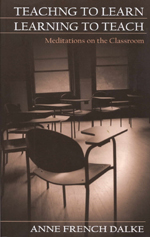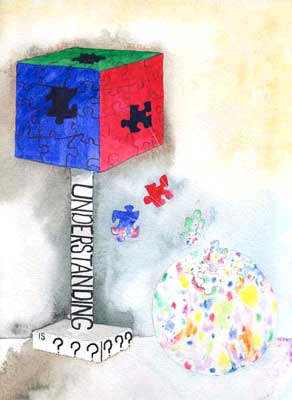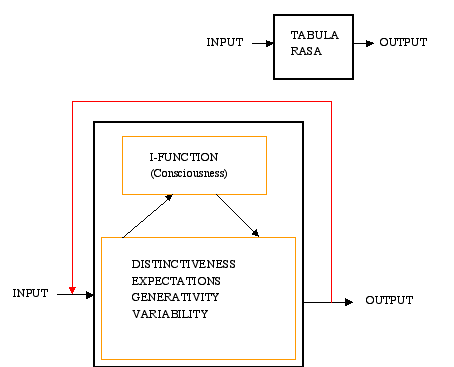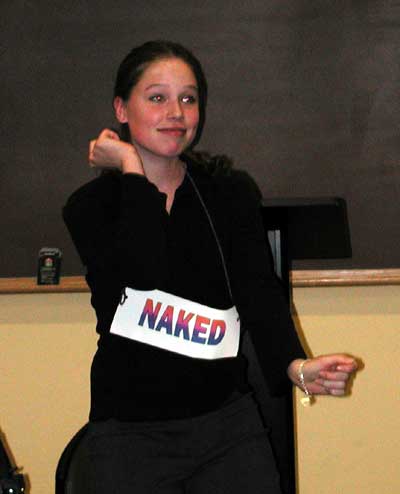
|
The clashing point of two subjects, two disciplines, two cultures --- of two galaxies as far as that goes --- ought to produce creative chances.
C.P. Snow, The Two Cultures and the Scientific Revolution
But it was from the difference between us, not from the affinities and likenesses, but from the difference, that [understanding] came, and it was itself the bridge, the only bridge, across what divided us.
Ursula LeGuin, The Left Hand of Darkness
"Together we reconstruct the texts that have been our classrooms in hope that others may find here useful accounts ..."
Dalke
"... don't depend on people knowing in advance what is "right," but rather on people having
confidence in the creative potential inherent in groups of people sharing different perspectives and ideas, in exactly the same sense that they have (or should have)
confidence in the creative potential inherent in all individuals, themselves included."
Grobstein
| 
|


 In the middle it hurt!
In the middle it hurt!